About Us
Soilgenics™ was established on the conviction that all life and human manageability is correlated with the integrity of the earth’s soil. For many years, the practices of Regenerative Farming, Sustainable Agriculture, and Carbon Farming have been the cornerstone of our endeavors. Our company’s commitment has always been aimed towards the improvement and refinement of proven innovations with industry “resilience”. This belief is set in advancing organic strategies to enrich the earth’s harvest, also known as “organism cultivation”. We would like to thank you for your enthusiasm in learning more about sustainable agriculture and soil organisms.
INTRODUCTION
Soil health is fundamental to profitable and sustainable agriculture. Vital organic matter and nutrients are often destroyed, depleted, or otherwise lost from the soil through overuse of fertilizers, erosion, and runoff as a consequence of unsustainable farming practices. Thus, vital organic bio-stimulants and beneficial micro-organisms are usually demolished through the overuse of soil erosion, nutrient runoff, and unsustainable chemical farming practices.
To combat this unsustainable cycle of waste, we harness nature’s technology to bring new solutions to modern agriculture. Our proprietary microbial formulation is suspended in organic bio-stimulants that complement each other to promote soil quality, plant health, and fertility in several ways.

Although beneficial soil microorganisms are essential in aiding plant life, they lack the photosynthetic organization to capture energy from the sun, namely because they survive on residual carbon-containing substances on or in the soil. The combination of our products provides a much-needed pipeline of energy by fulfilling the requisite mineral requirements to sustain these soil microorganisms. Consequently, the stored energy within the carbon bonds ignites various metabolic reactions within our supplemental algae, yeast, bacteria, fungi nematodes, mycorrhizae, and small animals. In turn, they are able to perform many beneficial functions which influence soil fertility and plant health.

PRODUCT BENEFITS
- Promotes faster germination and emergence
- Expands root biomass and structure
- Builds a more durable plant structure
- Reduces transplant shock with seedlings
- Heightens plant vigor leading to increased resistance to biotic or abiotic stress
- Elevates chlorophyll synthesis
- Promotes better seed germination
- Increases fertilizer retention
- Eliminates the use of non-organic fertilizers
- Improves efficiency of fertilizers, chemicals and amendments
- Chelates soil nutrients

- Improves nutrient uptake, especially phosphorus, sulfur, and nitrogen
- Reduces the need of nitrogen fertilization
- Solubilizes minerals
- Enhances soil structure
- Stimulates soil biological activity
- Acts as a storehouse of N, P, S, and Zn
- Improves water-holding capacity for better drought resistance and reduction in water usage
- Increases organic matter
- Unlocks bound-up nutrients
- Regulates pH in acid or alkaline conditions
- Remediates radiation and other toxins in soils
- Alleviates heavy metal contamination in soils
- Acts as a chelating agent to aid plants in the uptake and usability of essential nutrients for a crop’s healthy and a productive lifecycle
- Encourages a high BRIX level
- Increases the sweetness of fruits
- Improves flower production of flowering plants
- Maintains the freshness of cut flowers for a longer duration of time

WHERE ARE OUR MICROBES FROM?
MICROBES IN AGRICULTURE
Microbes have a symbiotic relationship with nature. In fact, microbes found within the rhizospheres of plants are much greater than the concentration that is found in the rest of the soil. Those microbes play a crucial role in the decomposition of organic matter, as well as maintaining and returning nutrients to their mineral form for efficient nutrient uptake in plants. Thus, microbes advantageously produce a variety of substances to promote plant growth and increase crop yields.
Soilgenics™ products contain a combination of many beneficial species of microbes. This ensures our products will work even in the most extreme climates.

Soilgenics™ ECOSYSTEM & SOCIAL HEALTH:
- Soilgenics™ contains natural microorganisms which help to eradicate the use of inorganic fertilizers by 100%. Not only does this reduce costs, but it also efficiently restores and enhances the quality of soil.
- Besides biodiversity, Soilgenics™ effectively reduces the toxic chemical compounds remaining in the soil, thereby enhancing soil fertility.
- Soilgenics™ products are organic and eco-friendly. They are non-toxic and are safe to use around children, adults, pets, and livestock.

Farmers normally look for soil with a high level of organic matter. The organisms that live in this type of soil are critical to its regeneration. They help to nurture high crop yields and reduce input costs. The combination of our products introduces micro-organisms that play a vital role in the decomposition of organic matter, thereby making retained nutrients available to the plant. Soil life plays a major role in many processes that increase nutrition and water availability for agricultural productivity.
The main activity of beneficial microorganisms is to grow and reproduce. Their effects on agricultural productivity include the decomposition of organic matter, soil aggregation, the breakdown of toxic compounds (both metabolic by-products of organisms and agrochemicals), inorganic transformations that make available nitrates, sulphates and phosphates as well as essential elements such as Fe and Mn, and N fixation into forms usable by higher plants. (cited by www.fao.org). The by-products from stable organic bio-stimulants, roots and plant residue collectively feed these soil organisms. In turn, these soil organisms, (such as bacteria and mycorrhizal fungi), support plant health as they transform organic matter into nutrients which are easily assimilated by plants.

HOW DOES SOILGENICS™ WORK?
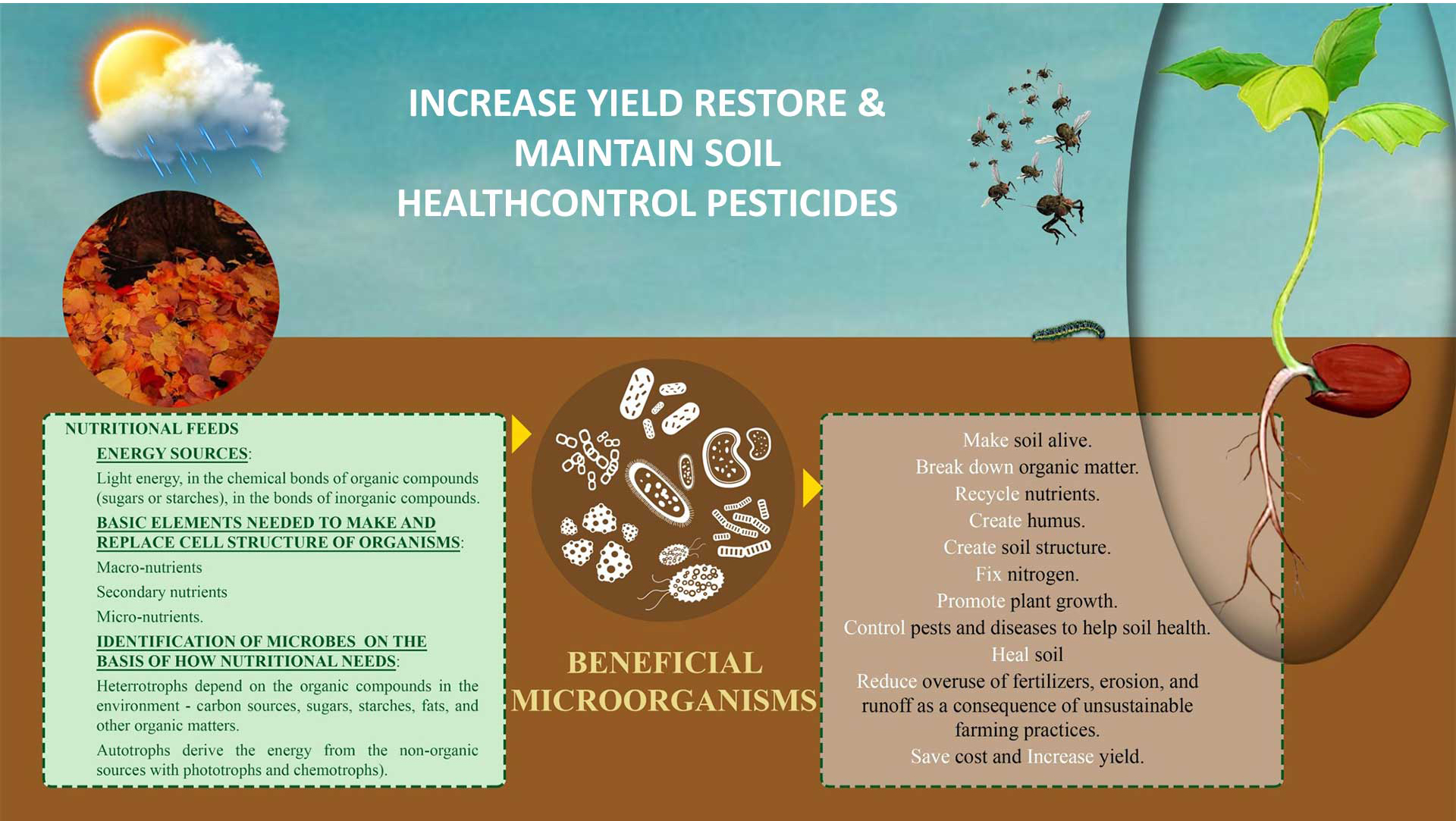
HEALTHY SOIL
When plants die, leaves are dropped onto the surface of the soil where microorganisms can breakdown and decay plant tissue. The organic matter is then used as an energy source for other microorganisms, which they use to increase their population in the soil. These organisms use easily digestible materials (like simple sugars and carbohydrates) found in the plant material, leaving more resistant materials (such as fats and waxes) behind. The organic matter left behind is not easily decomposed; it compromises the level of available nutrients in soil.
Beneficial microorganisms act as a gluing agent, essentially holding primary soil particles (sand, silt, clay) together to form secondary aggregates or ‘soil peds’. These organisms, when applied to plants or soils within a properly formulated bio-stimulant fertilizer, foster plant growth and development throughout the crop life cycle from seed germination to plant maturity in a variety of demonstrated ways. For example, they help the soil absorb and retain moisture in addition to helping plants tolerate abiotic stresses.
HEALTHY SOIL FROM NATURE
- Soilgenics™’s organic fertilizers are packed with minerals and vitamins from nature
- Soilgenics™ presents a 100% natural source of vitamins and minerals that can be applied to any soil and plant without worrying about harmful chemicals or waste of products
- Soilgenics™ is a great product to feed and rebuild the healthy soil
- The nutrients from nature help fruit become sweeter; vegetables to become larger; flowering plants to bloom longer post – harvest; and the soil’s biomass to become stronger and healthier
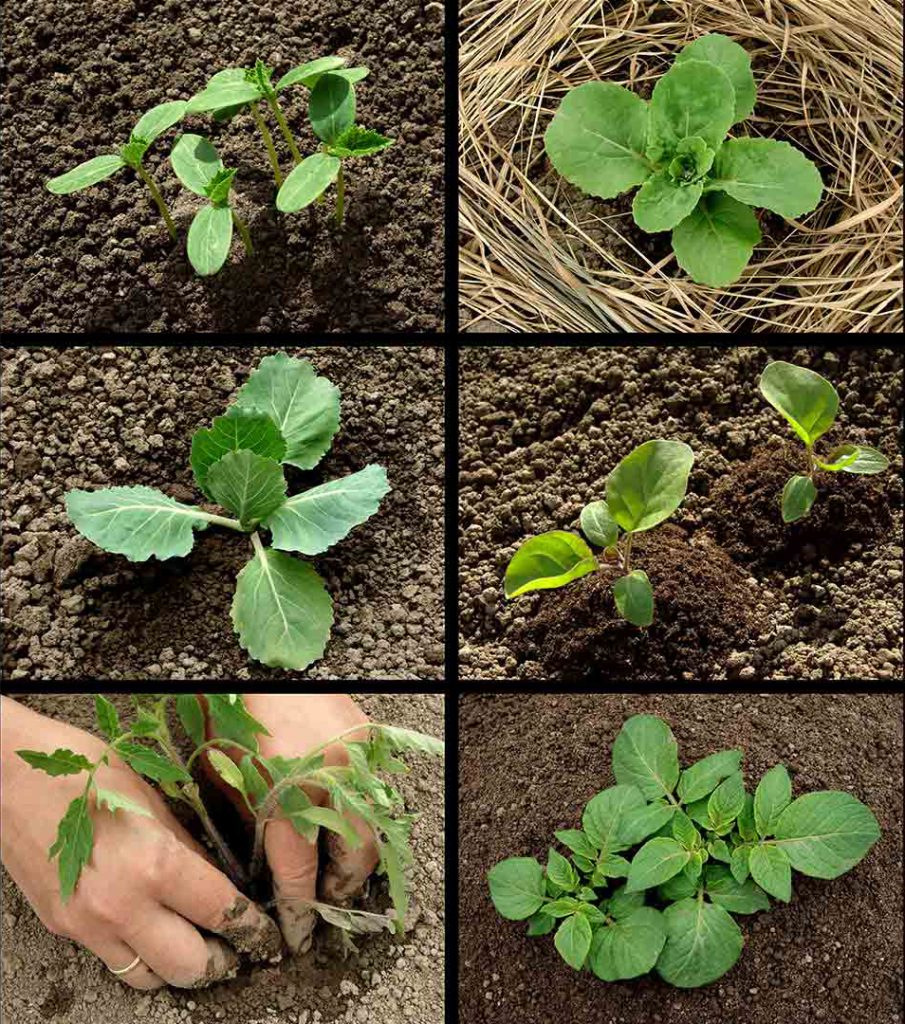
WHAT ARE ESSENTIAL NUTRIENTS FOR PLANT GROWTH?
Plants are complex organisms that require many different forms of nutrients. There are 17 nutrients that are essential for plant health. These are comprised of primary macronutrients (Nitrogen, Phosphorus, Potassium), secondary macronutrients (Magnesium, Sulfur, Calcium), micronutrients (Boron, Chlorine, Manganese, Iron, Nickel, Copper, Zinc, Molybdenum), and non-mineral elements (Hydrogen, carbon, Oxygen). All of these nutrients are necessary for optimal growth and a healthy plant life. Ultimately, it’s all about the biology of the soil and herein lies the reason why it is so important.

WHAT ARE THE BENEFITS OF SOILGENICS™?
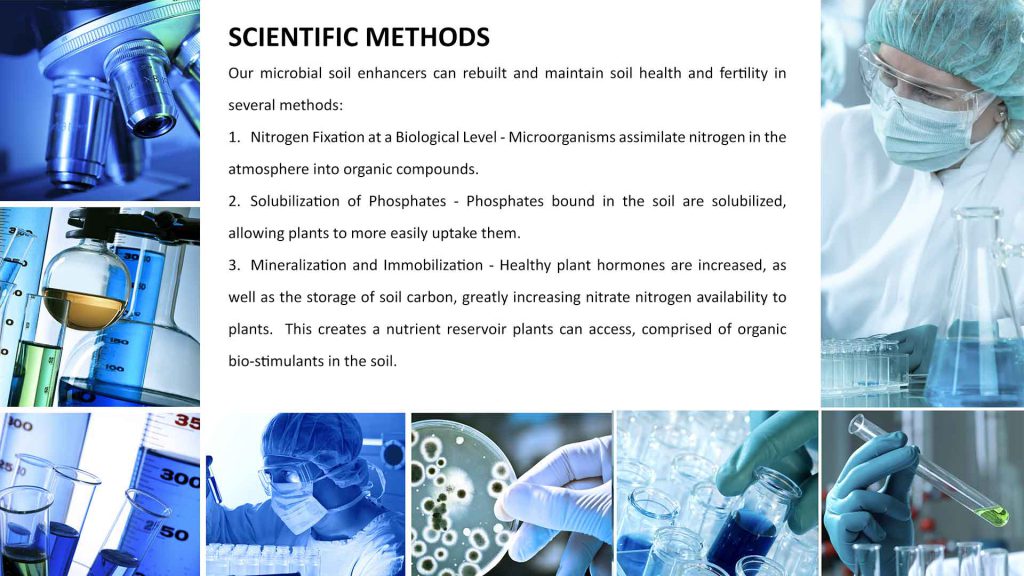
4. Production of Phytohormones – Using bacteria, Soilgenics™ significantly enhances the soil by reducing the salinity of the soil.
5. Balancing the soil’s pH level – The organic bio-stimulants found in Soilgenics™ make your soil more porous even under extreme environmental conditions, allowing for better aeration, infiltration and drainage of the soil. Leaching is also greatly reduced due to pH buffering as well as improving aggregation of soil particles.
6. Increased Saprophytic Competence – The microbes in Soilgenics™ are helped by saprophytes, which consume dead and decomposing matter. This allows Soilgenics™ products to perform better as it allows our microbes to better compete with both native soil microbes and other organic bio-stimulants.

BIOLOGICAL NITROGEN FIXATION
- 90 – 95% of Nitrogen in the soil is in an organic form that is not available for uptake by plants. Furthermore, 78% of the earth’s atmosphere is nitrogen which is not available for plant use.
- Soilgenics™ provides beneficial microbes that play a vital and necessary role in the Nitrogen cycle.
- This is the process of taking the unusable nitrogen from the air and converting it into organic compounds that plants and organisms can use.
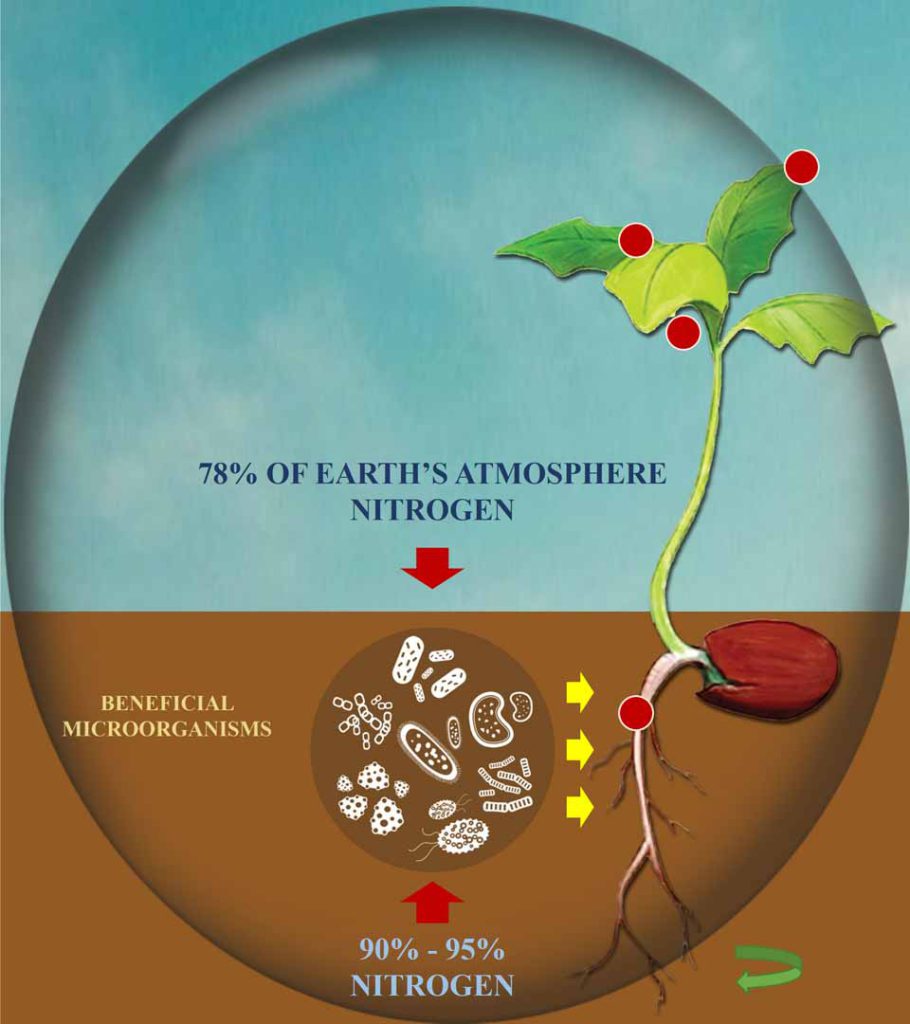
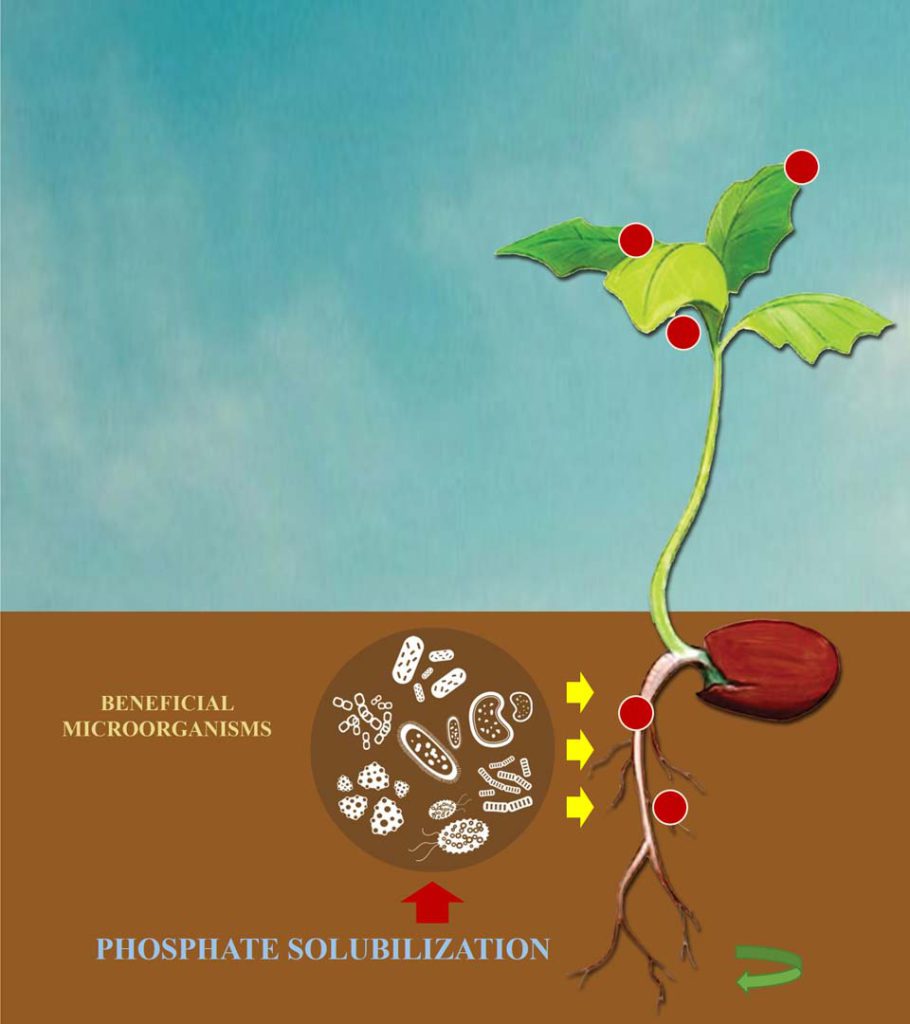
PHOSPATE SOLUBILIZATION:
- Phosphorus is one of the main nutrients plants need to grow healthy. Plants get the phosphorus from the soil by absorbing P from the soil as primary and secondary orthophosphates. It is essential that plants get enough phosphorus because it is important for many of its production cycles including root growth, converting the sun’s energy into usable energy and many other key functions. A lack of phosphorus is detrimental to the plant and will cause it to not absorb nutrients.
- Soilgenics™ helps plants receive the amount of phosphorus they need to thrive. Our product accomplishes this through phosphate solubilization which is the process of solubilizing bound phosphate in the soil and making it available for uptake by plants.
IMMOBILIZATION & MINERALIZATION:
Plants have different parts containing various amount of nitrogen. Our Soilgenics™ provides a balance of beneficial microorganisms as expressed in the amount of nitrogen in plants or in organic matter, also known as the carbon to nitrogen ratio (C:N ratio).
- Immobilization: When the C:N ratio of added organic matter is high (greater than 30:1 ratio), microorganisms require more nitrogen from the soil (form of nitrate or ammonium) or in the air (form of ammoniac) to decompose the carbon in the organic matter. This nitrogen will be immobilized (unavailable for plants) until these microorganisms die when the nitrogen is released.
- Mineralization: When the C:N ratio of reduced organic matter is low, (less than 30:1 ratio), the abundant nitrogen is supplied through the decomposition of the organic matter to obtain the nitrogen levels of the decomposing organism. As a result, there is a net release and build up of inorganic nitrogen in soil (mineralization)
The more we can balance the IMMOBILIZATION & MINERALIZATION, the more plants can update nutrients and increase yield.
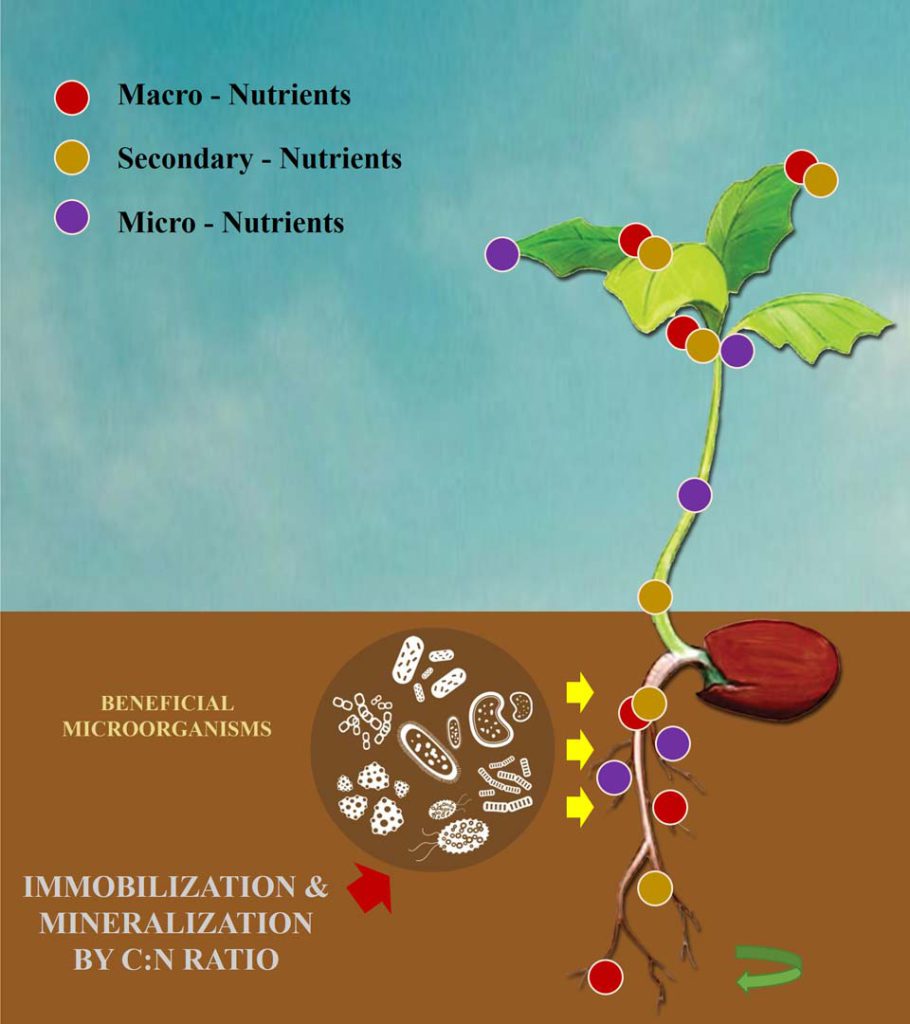
IMMOBILIZATION & MINERALIZATION:
The graph shows what happens when organic material with high C:N ratio is added into the soil. The process occurs in 3 phases.
1st Phase: Net Immobilization (C:N Ratio is decreasing)
- Number of microorganisms are increasing
- Microorganisms consume N (NH4+) causing it to decrease
- Microorganisms consume C compounds and release CO2
2nd Phase: Balance Immobilization & Mineralization
- Microorganisms have consumed most of the available N
- Maximum consumption of C products and production of CO2
3rd Phase: Net Mineralization (C:N Ratio is low)
- Microorganisms are dying
- NH4+ level is increasing – the NH4+ that was part of the microorganisms is now available in soil
- C compounds are decomposed – CO2 production is low
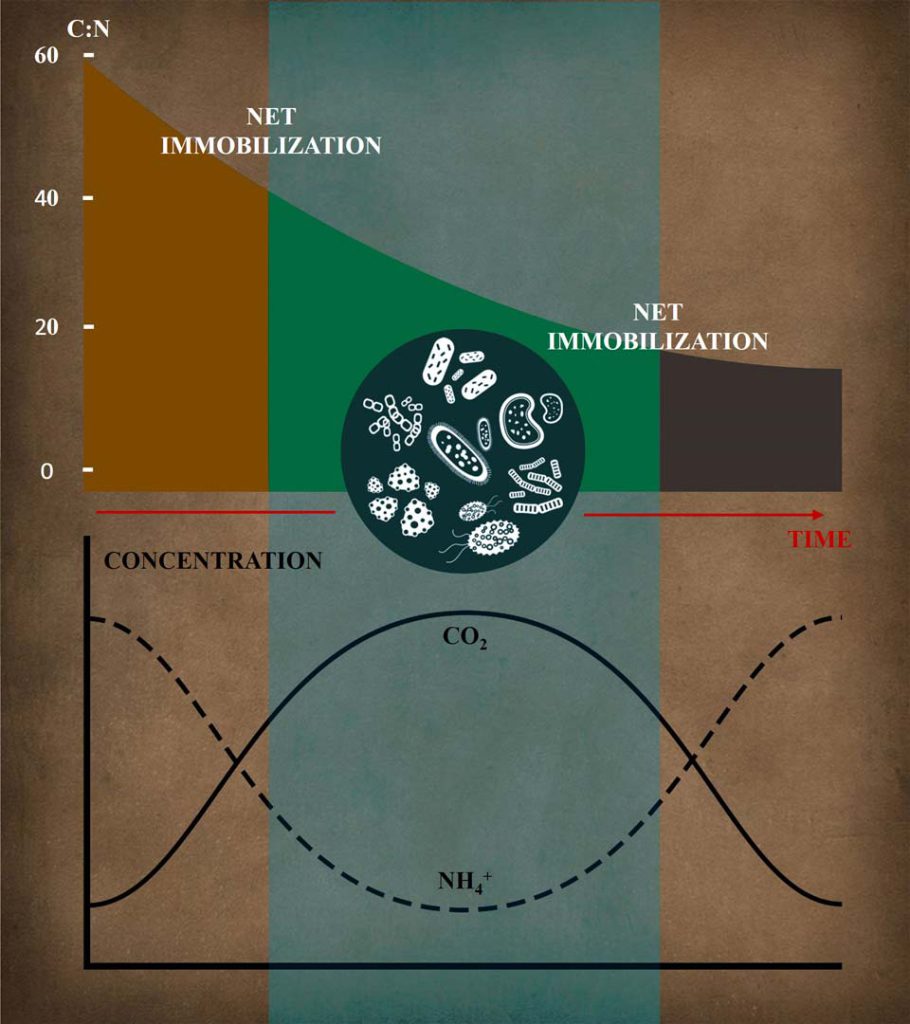
PHYTOHORMONE PRODUCTION:
- The growth-promoting microorganisms in Soilgenics™ contain organic stimulants and beneficial microorganisms that colonize on plants seeds to enhance plant growth. They produce phytohormones via phytohormone production.
- Phytohormone production is an organic substance synthesized in the plant that can be translocated to other stages, where it triggers unique biochemical, physiological, and morphological responses.
- This process boosts the crop’s ability to reach optimal growth and yield within the shortest time frame.
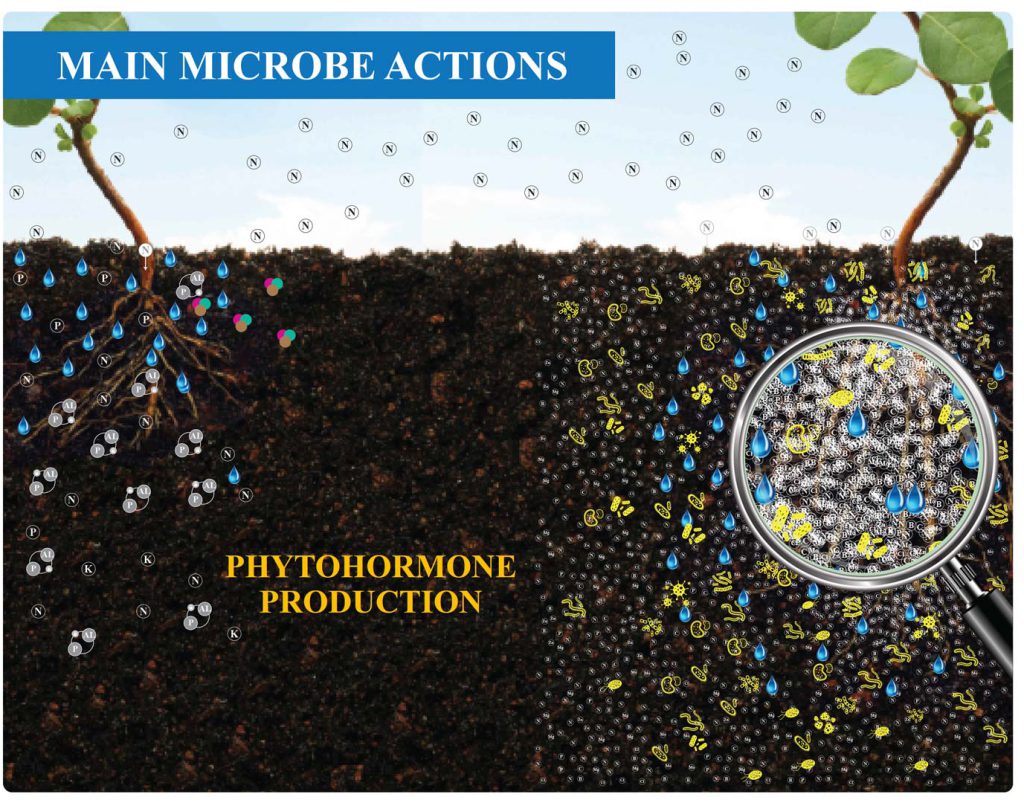
BALANCE SOIL pH:
- Soil pH has the highest effect on the availability of most nutrients to plants in both chemical form and solubility of nutrients in soil.
- Soilgenics™ promotes optimal soil pH under extreme environmental conditions. When soil pH is balanced, organic bio-stimulants make the soil more porous, thus improving soil aeration, infiltration and drainage. It also buffers the soil’s pH and prevents loss of plant nutrients through leaching. Organic bio-stimulants make soils more granular, improving the aggregation of soil particles.
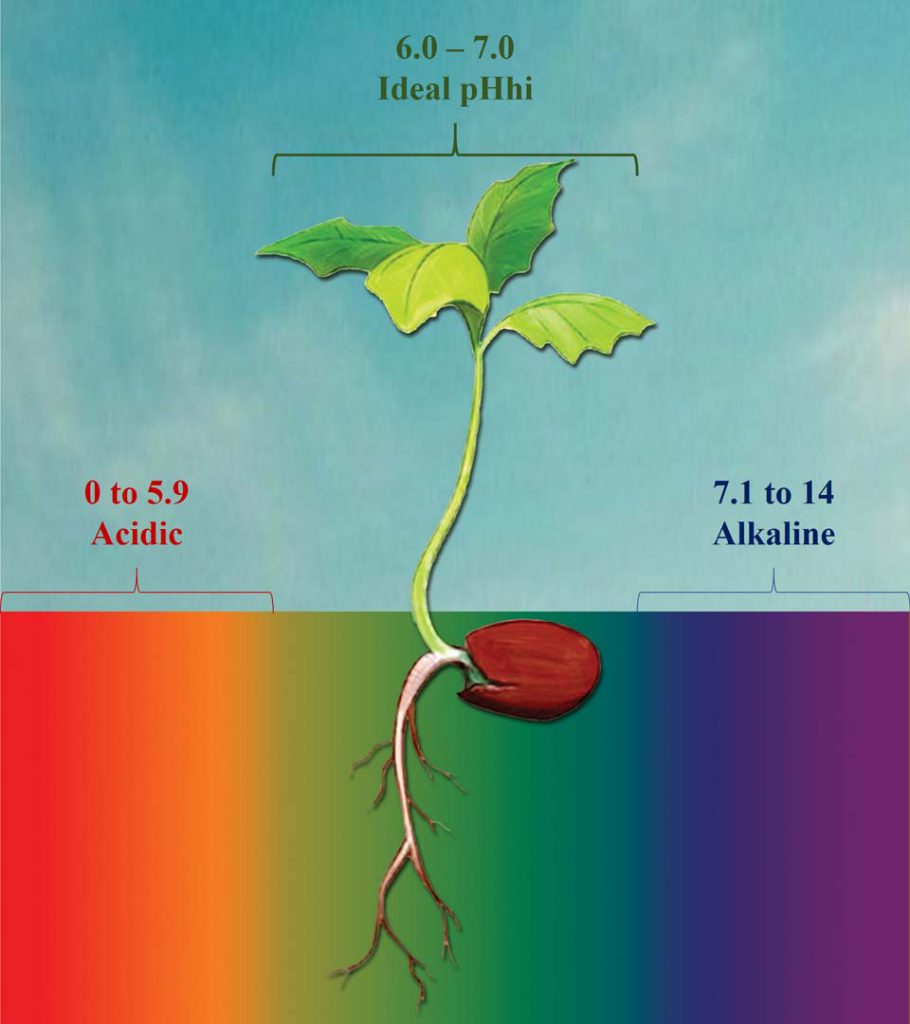
SAPROPHYTIC COMPETENCE:
- Saprophytic competence describes the ability of rhizobia inoculants to establish themselves in soil, at least for the interval between growing season. Species and strain differences in this ability are well documented.
- The saprophytic competence of Soilgenics™ has a unique role in utilizing and improving the aggressiveness and perseverance of commercial inoculants in the soil as compared to less efficient native strains. In addition, Soilgenics™ accesses available nutrients and additional water from the environment and soil for plants to uptake.
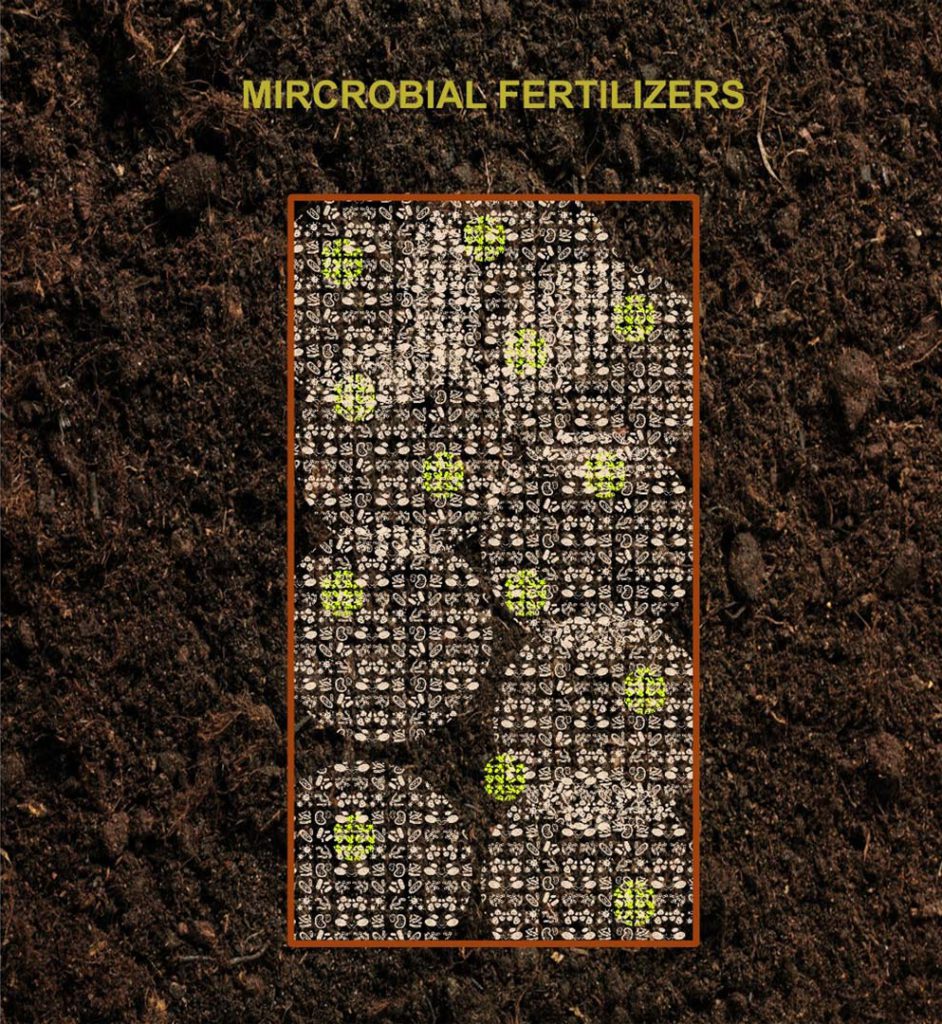
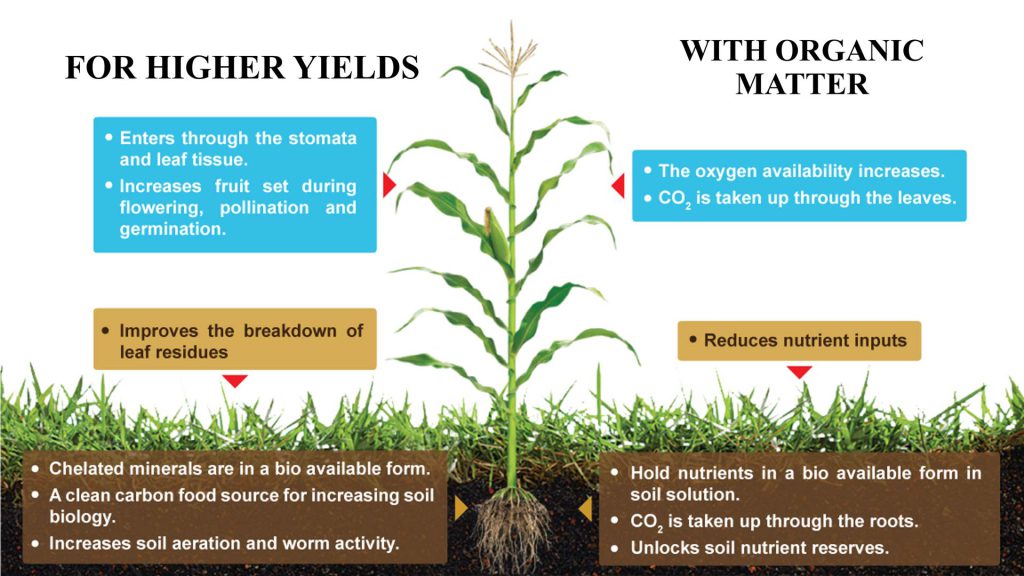
CONCLUSION:
Soil health is fundamental to a profitable and sustainable agriculture. Vital organic matter and nutrients are often destroyed, depleted, or otherwise lost from the soil through overuse of fertilizers, erosion, and runoff as a consequence of unsustainable farming practices.
Our products combine microbes with organic bio-stimulants to bring the best nutrients to your plants. The microbes work to break down organic matter in the soil to make macronutrients, secondary nutrients and micronutrients available for plants. This combination of microbes is used to further benefit the soil by making it more fertile by allowing it to retain moisture. It also provides reservoirs for nutrients so that they are readily available for plants. Along with all the benefits to soil health, farmers reduce costs not having to buy traditional fertilizers.

We believe in helping farmers cultivate renewable soil by harnessing the power of nature to significantly increase crop yields and produce sustainable food sources. Towards that end, we utilize the relationship between microbes and organic bio-stimulants to create a healthier soil that is not ravaged by the effects of chemical fertilizers and pesticides. Compared with traditional fertilizers, our products encourage a longer-range, healthful soil that nurtures the best growth and yield potential for your crops. We are firmly committed to providing the latest technology in microbial soil enhancers in order to provide the highest quality, environmentally-friendly products that create and maintain thriving eco-systems for healthy, sustained plant growth.

